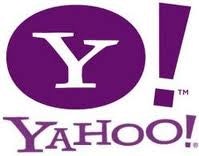
While the introduction of Marissa Mayer as Yahoo’s new CEO has brought renewed focus on mobile and its e-mail services, the company is not resting on its laurels in the realm of sports. Earlier this week, Head of Yahoo! Sports Ken Fuchs announced “a new content alliance” with NBC Sports Group, via its corporate blog. In the post, Fuchs mentioned a few things that should have any sports fan’s mouth watering, including: (1) collaborative written content, (2) live streaming of thousands of sporting events, (3) more original video programming, (4) an exclusive partnership with NBC Sports’ Rotoworld fantasy service, and (5) a greater focus on local sports coverage.
Regarding point No. 4, it should be mentioned that while there aren’t any official user statistics, it’s widely accepted that Yahoo! Fantasy Sports already has more user accounts than peers like ESPN, CBS Corporation (NYSE:CBS), and Fox Sports, a subsidiary of News Corp (NASDAQ:NWSA). A partnership with Rotoworld only strengthens the breadth of this behemoth.
Though it’s tempting to believe that fantasy sports is a niche offering, this couldn’t be further from the truth. On the whole, the fantasy sports industry has grown by leaps and bounds since the proliferation of Web 2.0, currently generating $3 to $4 billion dollars in revenues per year. Since 2007, the number of active fantasy players has grown 60%, and surpassed 30 million people this past year. A whopping 20% of American males age 12 and older participate in at least one fantasy league each year.
Looking at fantasy sports in particular, we speculate that Yahoo’s decision to partner with NBC Sports was a natural reaction to ESPN’s integration of its own fantasy services into its various media outlets. Traditionally, the ability to advertise and feature analytical content has been an advantage of ESPN over Yahoo, so it’s encouraging to see the scales balance, so to speak.
Qualitatively speaking, a slightly outdated report by FantasyPros has determined that Yahoo’s staff is more accurate than the experts at ESPN, which undoubtedly have an effect on the service’s popularity. The inclusion of marketing materials in NBC Sports broadcasts like NFL Sunday Night Football, the U.S. Open, a potential MLB package (2014), a comprehensive NHL package, and Premier League Football (2013), will do wonders for the reach of Yahoo’s fantasy sports service.
How can investors play this situation?
For starters, we can see that shares of Yahoo’s stock have returned nearly 29% over the past three months alone, easily outpacing the likes of Disney (-4%), Time Warner (9.5%), CBS (-2.7%), and News Corp (2.4%). Much of Yahoo’s price appreciation can be attributed to two straight quarterly EPS beats – by an average margin of 28% – but Marissa Mayer’s step into the CEO slot has assured even the wariest of investors.
Looking ahead, Wall Street expects Mayer and Co. to generate EPS growth of 11-12% a year over the next half-decade, which is quicker than its previous five-year growth rate (9.6%). More importantly, this forecast is more or less in-line with what’s expected of Disney (12.5%), Time Warner (12.0%), CBS (13.9%), and News Corp (14.0%).
From a valuation standpoint, we can see that investors are severely under-appreciating Yahoo’s growth potential in relation to its peers. The company’s shares currently sport a price-to-earnings growth ratio of 0.51; typically any figure below 1.0 signals an undervaluation. Disney (1.26), Time Warner (1.48), CBS (1.10), and News Corp (1.60) are all more than twice as expensive. In other words, the markets are treating Yahoo like a low-growth stock, even though it is essentially on par with the rest of its peers.
In the hedge fund industry, some of the top Yahoo bulls at the end of last quarter were Dan Loeb’s Third Point (see Loeb’s full portfolio), Tiger Global Management, and David Einhorn’s Greenlight Capital (see David Einhorn’s newest stock picks). On a capital allocation basis, aggregate hedge fund interest in Yahoo increased 27% in Q3 alone (qoq), to surpass $4 billion. Of the 400 funds we track, 57 currently hold long positions in YHOO stock. This is greater than the fund interest in Disney (47), Time Warner (37), and CBS (38), while trailing only the interest in News Corp’s class A shares (60) out of the companies we’ve discussed. Here’s a look Yahoo’s fund interest in full.
To recap: the NBC Sports deal will be huge for Yahoo! Sports’ ongoing battle with ESPN, and from an investing standpoint, now may not be a bad time to jump into shares of the former. Yahoo’s stock trades at a deep discount in relation to its closest media peers, and also has solid support from the smart money.





